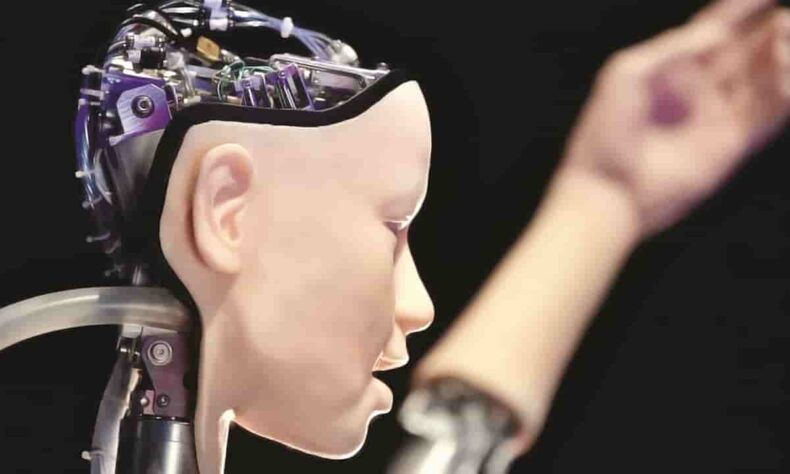
By Tasmiya Khan
Artificial Intelligence (AI) has increasingly become a defining feature of modern society, affecting nearly every domain of human life from healthcare and education to business and transportation. However, one of the most complex and interesting intersections is between AI and the legal system. The legal world, known for its deeply rooted traditions, procedural formalities, and reliance on human judgment, is now undergoing a transformation due to the infusion of intelligent machines and data-driven decision-making. The integration of AI into legal practice and regulation is not merely a matter of convenience but represents a profound shift in how law is interpreted, practiced, and enforced.
This essay explores the dynamic relationship between AI and the legal system, tracing how AI is reshaping legal practice and influencing regulatory frameworks. It considers the benefits, risks, and ethical dilemmas of using AI in legal contexts and sheds light on how lawmakers are adapting laws to deal with the very technology that threatens to upend traditional legal norms.
AI as a Tool for Legal Professionals
AI is not replacing lawyers at least not yet but it is transforming how they work. One of the most visible impacts of AI on the legal system is its role in supporting lawyers through intelligent software and automated processes. Law firms are increasingly using AI-based tools for tasks such as legal research, contract review, due diligence, and document analysis. These tools rely on natural language processing and machine learning to read and understand vast volumes of text, identify relevant precedents, and suggest potential legal strategies.
For example, legal research, which once required days of poring over casebooks, can now be accomplished in minutes using AI-powered platforms. These tools can process thousands of legal documents to identify patterns and present relevant cases, statutes, and interpretations. Similarly, contract analysis tools can detect anomalies, inconsistencies, or risky clauses within seconds, reducing the burden on junior lawyers and allowing firms to serve clients more efficiently.
The benefits here are significant: improved efficiency, lower costs, reduced human error, and increased access to legal services. In an industry where time is quite literally money, AI has become a competitive advantage.
AI in Predictive Analytics and Legal Decision-Making
Another key area where AI is making inroads is predictive analytics. AI algorithms can be trained to predict case outcomes based on historical data, judge behavior, and previous rulings. In jurisdictions where court records are digitized, AI systems can analyze millions of past cases to forecast how a judge might rule on a specific matter.
This predictive capacity has vast implications. Lawyers can use it to evaluate the strength of their cases, advise clients more accurately, and even determine whether to settle or proceed to trial. Insurance companies and financial institutions also use such tools to assess litigation risks.
However, the use of predictive analytics in actual legal decision-making such as sentencing or bail determinations raises ethical concerns. In the United States, some courts have experimented with algorithms like COMPAS (Correctional Offender Management Profiling for Alternative Sanctions) to assist in sentencing and parole decisions. Critics argue that such systems can be biased, opaque, and devoid of human empathy. A fundamental concern is the risk of automating injustice where flawed data or historical bias embedded in the algorithm perpetuates existing inequalities.
AI and Access to Justice
One of the most promising aspects of AI in the legal field is its potential to improve access to justice. Legal services are expensive and, in many cases, inaccessible to marginalized or economically disadvantaged populations. AI tools, such as virtual legal assistants, chatbots, and online dispute resolution platforms, can help bridge this gap.
Legal tech startups are already offering AI-driven assistance for common legal problems like housing disputes, small claims, or consumer rights at little or no cost. By automating the preparation of legal documents and offering instant legal guidance, these platforms empower individuals who might otherwise forgo legal remedies due to cost or complexity.
This democratization of legal services may not replace the need for lawyers in complex cases, but it could significantly improve legal literacy and help citizens assert their rights in everyday situations.
AI and Regulatory Challenges
As much as AI is influencing legal practice, it is also forcing regulators to reconsider existing laws and frameworks. Most legal systems around the world were not designed to accommodate the unique challenges posed by AI. Issues such as accountability, transparency, data privacy, and algorithmic bias require a fundamental rethinking of how laws are created and enforced.
One pressing issue is legal liability. If an autonomous vehicle causes an accident, who is responsible the manufacturer, the software developer, the vehicle owner, or the AI system itself? Traditional legal doctrines struggle to handle such questions because AI systems lack legal personhood and intent, yet they operate with a degree of autonomy that blurs the lines of responsibility.
In response, governments and legal scholars are exploring new concepts such as “electronic personhood” for AI systems or adapting existing tort and contract laws to cover AI-based decision-making. Meanwhile, the European Union has taken the lead in AI regulation, proposing the AI Act, which seeks to classify AI systems based on risk and impose strict obligations on high-risk applications.
Another regulatory challenge is the lack of transparency in AI decision-making. Algorithms often function as “black boxes,” making it difficult to understand how a particular outcome was reached. This creates problems in contexts like credit scoring, hiring, and criminal justice, where individuals have a right to understand the basis for decisions that affect their lives.
To counter this, legal frameworks are evolving to include requirements for explainability and auditability of AI systems. The goal is to ensure that decisions made by machines are not only accurate but also fair, accountable, and understandable to humans.
Implications for Ethics and Philosophy
Deeper philosophical and ethical issues are brought up by the incorporation of AI into the legal field. Should human rights-related decisions ever be made by AI? Is it possible for a machine to comprehend the subtleties of morality, justice, or mercy? Can algorithms take the place of human judges and attorneys in terms of judgment, empathy, and contextual knowledge?
Many contend that AI lacks the moral reasoning and emotional intelligence required for more complex legal issues, even though it can help with mundane chores. A system that is only based on data may adhere to regulations precisely but overlook unique human situations. AI should therefore be used to augment rather than to replace.
Furthermore, there is the issue of data bias. Inherent societal biases may be present in past data that AI systems use to learn. AI has the potential to create unjust results, prejudice disadvantaged populations, and promote stereotypes if it is not properly addressed.
Legal experts, ethicists, and engineers must collaborate to create moral standards for AI creation and application in order to allay these worries. While some advocate for a “human-in-the-loop” strategy, in which AI judgments are constantly examined and approved by a human actor, others propose the creation of interdisciplinary oversight bodies.
Conclusion
AI and the legal system have a complicated, dynamic, and multifaceted interaction. AI has the ability to completely transform the legal profession by increasing productivity, cutting expenses, facilitating data-driven insights, and increasing access to justice. At the same time, it calls into question the fundamental tenets of legal systems that depend on accountability, justice, and human reasoning.
The development of regulatory frameworks that guarantee responsible technology usage while preserving human rights and democratic principles is crucial as AI becomes more integrated into legal procedures. In order to ensure that the instruments we develop advance justice rather than undermine it, the legal profession must not only welcome innovation but also help to shape it.
Another challenge lies in the bias that can exist within the data used by AI. Ultimately, AI itself is neither a threat nor a complete solution for the judicial system. It is simply a tool a powerful one that must be handled with care, guided by ethics, and used with full transparency. The future of law in the era of AI will depend on our ability to harness technological progress while staying true to the enduring principles of justice, fairness, and respect for human dignity
—Tasmiya Khan is a fourth-year B.A. LL.B. student of Al-Ameen College of Law
📰 Crime Today News is proudly sponsored by DRYFRUIT & CO – A Brand by eFabby Global LLC
Design & Developed by Yes Mom Hosting





